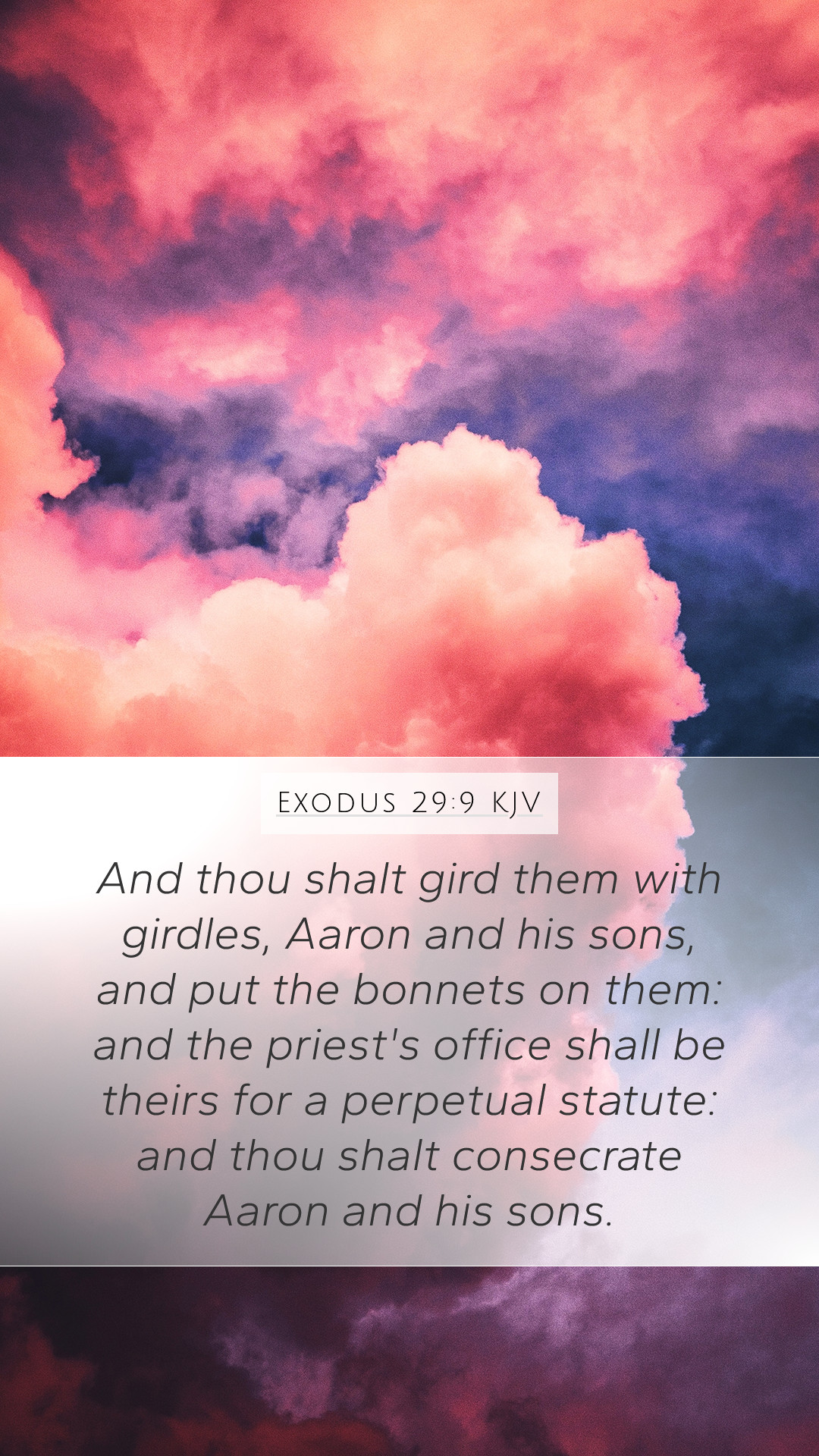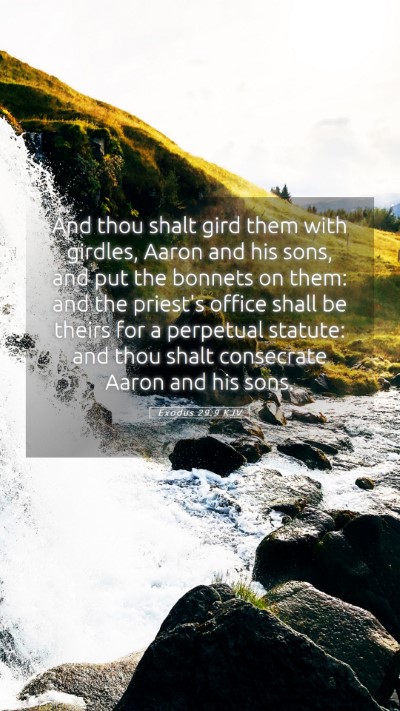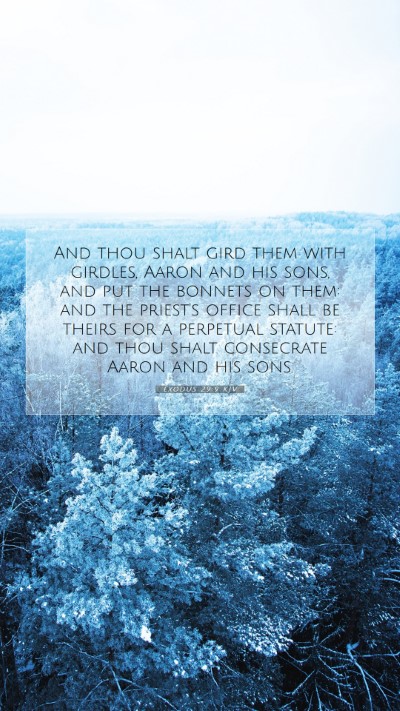Understanding Exodus 29:9: A Comprehensive Commentary
Exodus 29:9 states: "And you shall gird them with sashes, Aaron and his sons, and put the hats on them, and the priesthood shall be theirs for a perpetual statute." This verse is rich in meaning, carrying significant implications for the understanding of priesthood, service, and the covenant between God and His chosen people.
Summary of Exodus 29:9
In this pivotal verse, God outlines the ceremonial clothing and ordination of Aaron and his sons, emphasizing the solemnity and significance of their roles as priests. The instructions not only pertain to their attire but also symbolize their dedication to serving God and His people.
-
Bible Verse Meanings: The priestly garments signify holiness, separation from worldly affairs, and the divine responsibility that the priests carry.
-
Bible Verse Interpretations: Aaron’s role as the high priest and the ordination of his sons emphasize the importance of lineage and continuity in serving God.
-
Bible Verse Explanations: The sashes and hats represent both physical and spiritual preparation for the important task of mediating between God and the Israelites.
Insights from Public Domain Commentaries
Matthew Henry's Commentary
Matthew Henry observes that the attire of the priests was not merely for aesthetic purposes but served as a representation of their unique calling. The act of girding signifies readiness for service while the hats signify dignity and reverence. Henry emphasizes that this ordination wasn't just a formality but a divine ceremony that conferred authority and responsibility upon Aaron and his sons.
Albert Barnes' Notes
Albert Barnes highlights the significance of this priesthood being designated as a "perpetual statute." This term indicates not only the ongoing nature of their priesthood but also a reminder of the unbroken relationship between God and His people through designated leaders. Barnes notes that the priesthood represented a vital connection to God, where sacrifices and intercession occurred for the sins of the nation.
Adam Clarke’s Commentary
Adam Clarke points out that the priestly garments, including the sashes and hats, were emblematic of purity, humility, and separation from common life. Clarke explains that the adornment of Aaron and his sons was not only about appearance but carried deep spiritual significance – a call to be models of holiness and serve God faithfully. This representation of God’s will and His glory in the physical realm is a powerful reminder of the importance of worship and obedience.
Broader Themes in Exodus 29:9
-
Holiness and Service: The verse emphasizes the call to holiness that comes with serving God. The garments adorn the priests in a manner that sets them apart for their sacred duties.
-
Covenant Identity: The ordination of Aaron's lineage signifies the establishment of a covenant identity among the Israelites. The priests were to act as a bridge between God and man.
-
Symbolism of Ordination: The act of putting on the priestly garments coincides with their commissioning for service, indicating that their identity is intertwined with their function as mediators.
Application of Exodus 29:9 to Daily Life
Understanding Exodus 29:9 is not limited to its historical context but extends to contemporary relevance. Believers today are called to recognize their roles as a "royal priesthood" (1 Peter 2:9), where service to others and dedication to God’s work are paramount.
The call to holiness and readiness for service is a principle that applies to all aspects of life. We may not wear physical garments like priests, but our actions and attitudes can reflect a commitment to God as we live out our faith in our communities.
Related Bible Verses
- 1 Peter 2:9 - "But you are a chosen generation, a royal priesthood..."
- Exodus 28:1 - "And take thou unto thee Aaron thy brother, and his sons with him..."
- Hebrews 5:4 - "And no man taketh this honor unto himself, but he that is called of God..."
Conclusion
Exodus 29:9 serves as a cornerstone for understanding the nature of priesthood and the significance of divine calling throughout Scripture. Through the lens of various commentaries, we can derive profound insights that inform our Bible study groups, personal reflections, and applications in our daily lives. This verse encapsulates key aspects of our identity as believers and our commitment to serving God faithfully.


